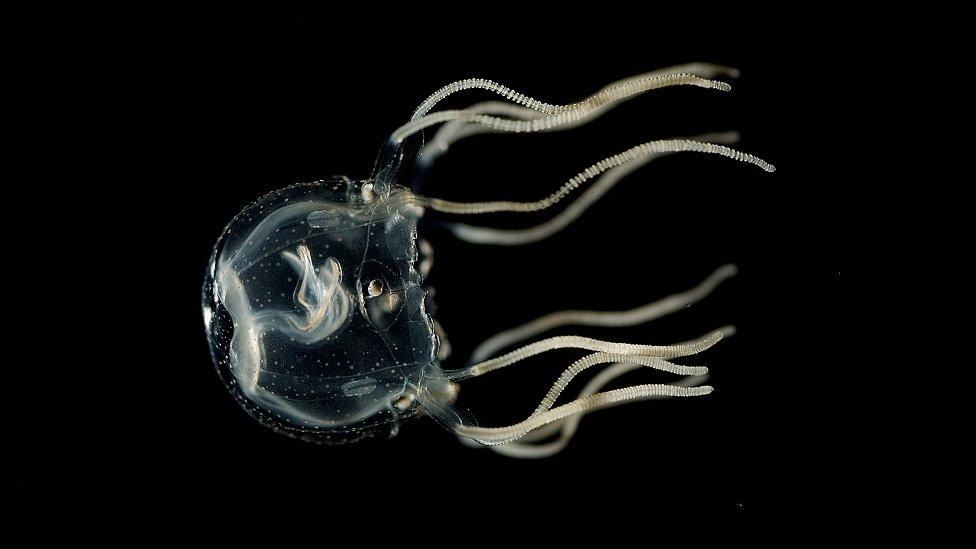Scientists discover clever coral can 'walk' towards light
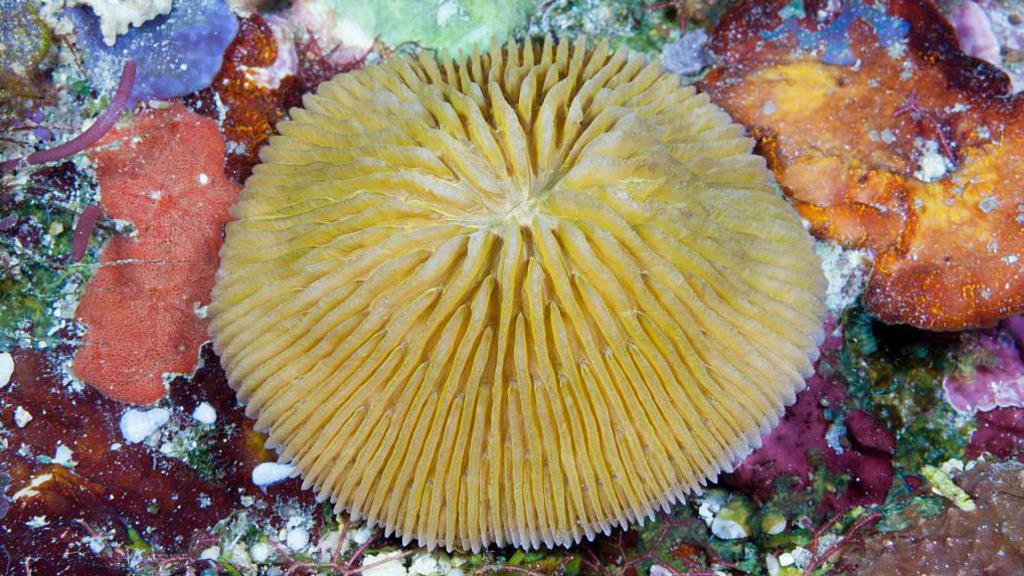
This mushroom coral can actually 'walk' - what a fungi!
- Published
Many of us love a bit of time in sunny weather - and now scientists have found out that some forms of coral do too.
When we think of coral, we might imagine the type that roots itself to the ocean floor. But some forms can move freely and migrate towards the habitats they prefer.
Now scientists have discovered that mushroom coral are real sun seekers and actually "walk" towards light.
Researchers say their findings could be used to help protect corals from climate change. Krill-iant news!
More news about important coral
World's largest coral discovered by accident
- Published14 November 2024
How climate change is turning the world's coral white
- Published16 April 2024
How multivitamins could help save coral reefs
- Published2 December 2024
How was the 'walking' coral studied?
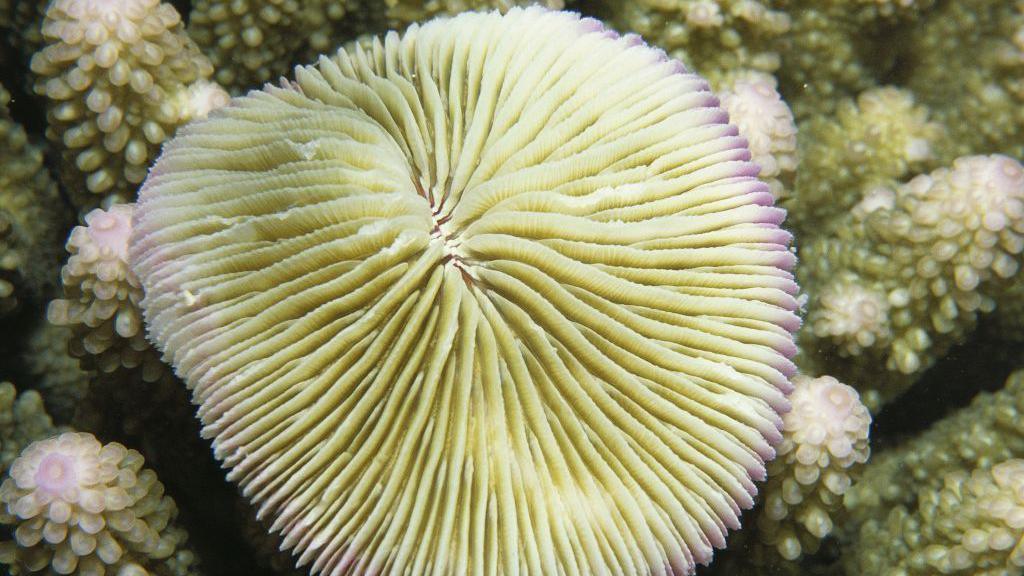
The study showed that the mushroom coral were smarter than previously thought
The study looked at how mushroom coral, also called Cycloseris cyclolites, move and respond to light in their natural environments.
The research was led by Dr Brett Lewis from Queensland University of Technology and published in PLOS One.
This coral moves to different reef habitats, often seeking for the best light conditions.
Using high-resolution time-lapse photography, the team found it was able to move through using something known as 'pulsed inflation'.
This is where the coral inflates and deflates its tissue in bursts to propel itself forward, like a jellyfish.
The study says the process appears to be how free-living coral get around. It assists them in situations, like when they turn upside down, and can also help them survive in complex environments.
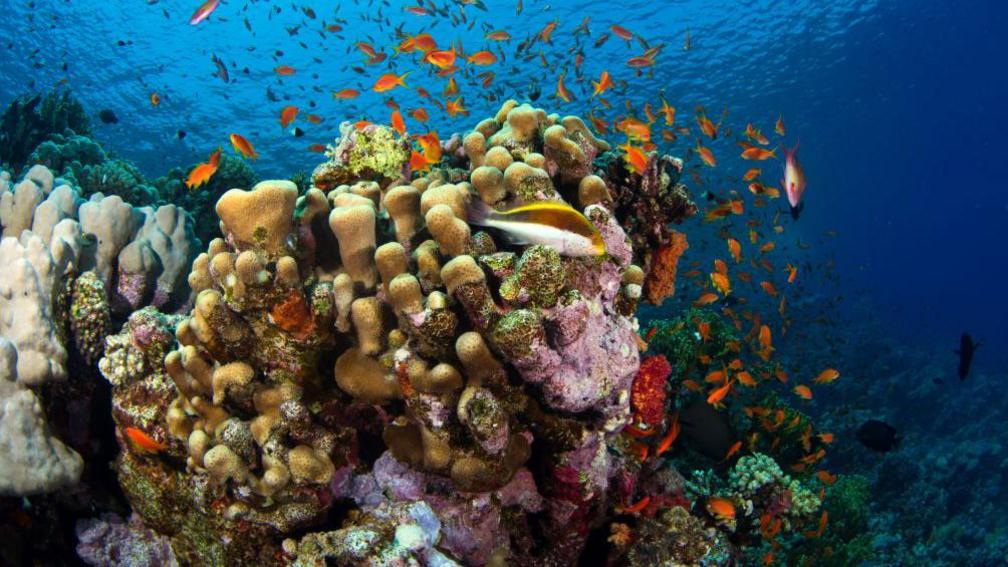
Coral reefs provide an underwater home for marine life and serve as a natural barrier against storms
How can this research help corals with climate change?
When given a choice, most of the corals moved towards blue light compared to white light.
Their ability to tell the difference shows that they prefer deeper water habitats, which the study says could be crucial for their survival.
Dr Lewis explained: "Understanding their movement strategies could help scientists predict how migratory corals might resist, survive or adapt to changes in environmental conditions, such as sea surface changes caused by climate change, which can be reduced by the deeper waters these corals migrate to."
More 'unbe-reef-able' stories
- Published16 October 2024
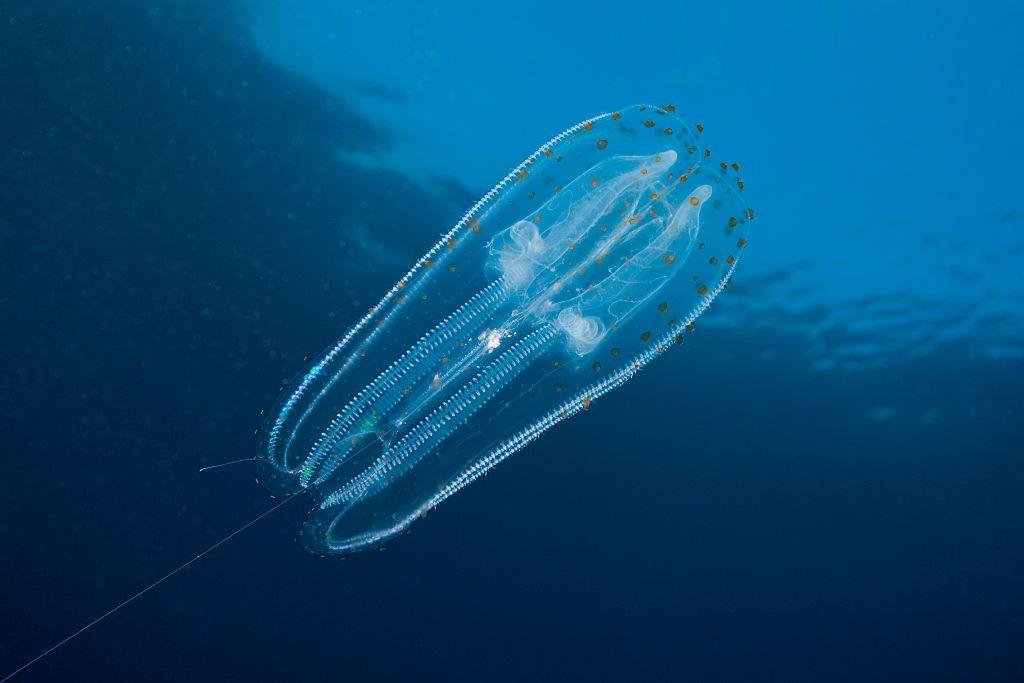
- Published13 March 2024

- Published28 September 2023
